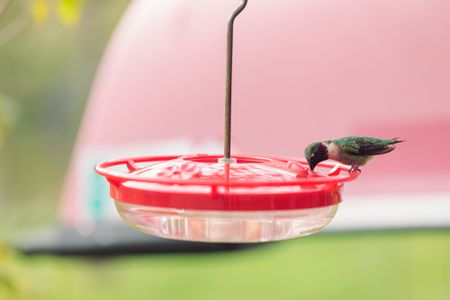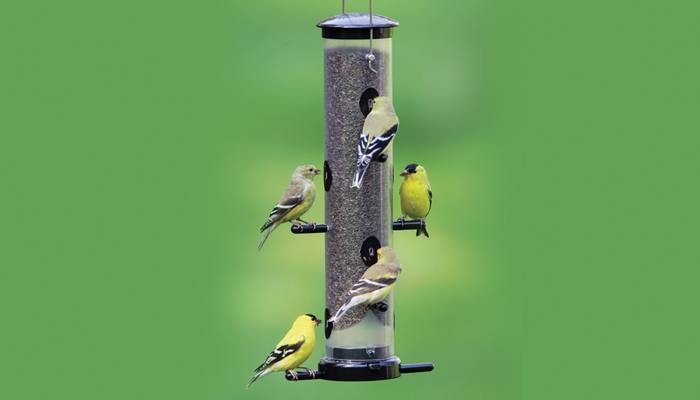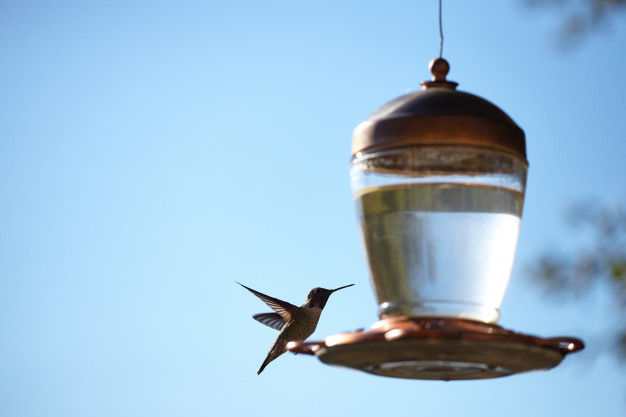As mentioned in the section on the Basics of Attracting and Feeding Hummingbirds Hummingbirds have some very specific preferences and needs. While store bought nectars will likely meet your requirements, they can also contain additives that aren’t ideal.
My early experiments with hummingbird feeding involved using a commercial nectar. The product did the job of bringing in the birds but I worry to this day that the red coloring may have been harmful. Though I haven’t found any literature proving conclussively that artificial coloring presents a risk to fragile hummingbirds, it is perhaps best to er on the side of caution and avoid such solutions entirely.
If you choose to use a commercial product for your hummingbird feeding needs, consider avoiding products containing artificial coloring, additives and nutrients. Remember that a hummingbird consumes nectar to fuel its engine for hunting real food. Nectar produced with nutrition in mind might be more harmful than useful (though there’s no proof to back that up, just the perhaps overly-cautious concern of a bird lover).
Any powder nectar mix you might buy is going to require preparation including mixing (and probably boiling) in water. As hummingbird feeding with homemade nectar requires the same steps, you could consider the diy approach as a more economic and more involved way of meeting your hummingbird feeding needs.
To produce a homemade nectar, use only cane table sugar. As noted in Special Hummingbird Feeding Needs you want to use a mixture of about 1 part cane sugar for every 4 parts water but can intensify the mix to 1 part cane sugar for every 3 parts water during migration periods. Those who wish to use other sweetner options should be warned that you might risk driving off your hummingbirds or harming them.
Feeding hummingbirds should never include the use of powdered sugar. Also avoid raw sugar as it contains iron which can, over time, prove harmful or fatal to hummingbirds. As mentioned in Basics of Attracting and Feeding Hummingbirds, never use honey as a sweetner. Honey can lead to fungal an microbeal infestations that are fatal to hummingbirds.
Finally, don’t put your hummingbirds on a diet. A hummingbird is always hours away from starvation. They feed on copious amounts of nectar, far in excess of their own body mass, during the day just to provide the energy they need to hunt for the food that keeps them alive. Artificial sweetners such as sacarine may fool the birds into visiting your hummingbird feeding station but will provide absolutely zero calories of burnable energy. A bird fooled into consuming nectar made from an artificial sweetner will likely burn energy it doesn’t have and be unable to hunt for the sustenance it desperately needs to stay alive. So I’ll say it again – NO ARTIFICIAL SWEETNERS!
REWORK REQUIRED





